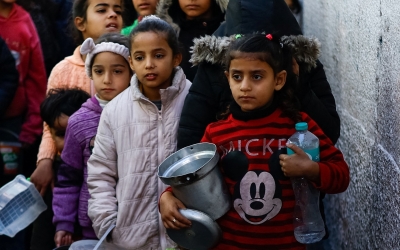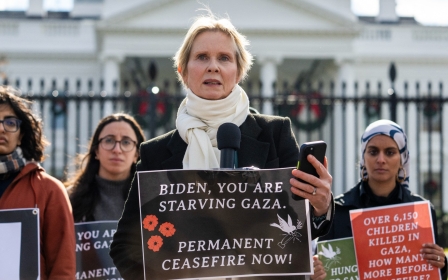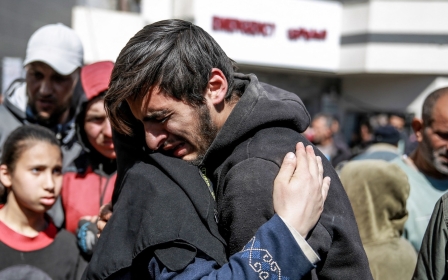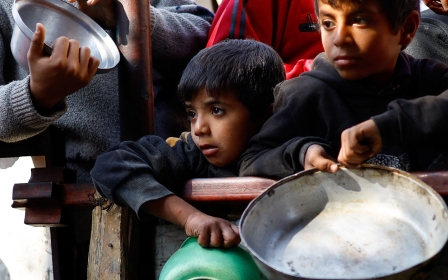War on Gaza: Children are starving to death. The political games must end now
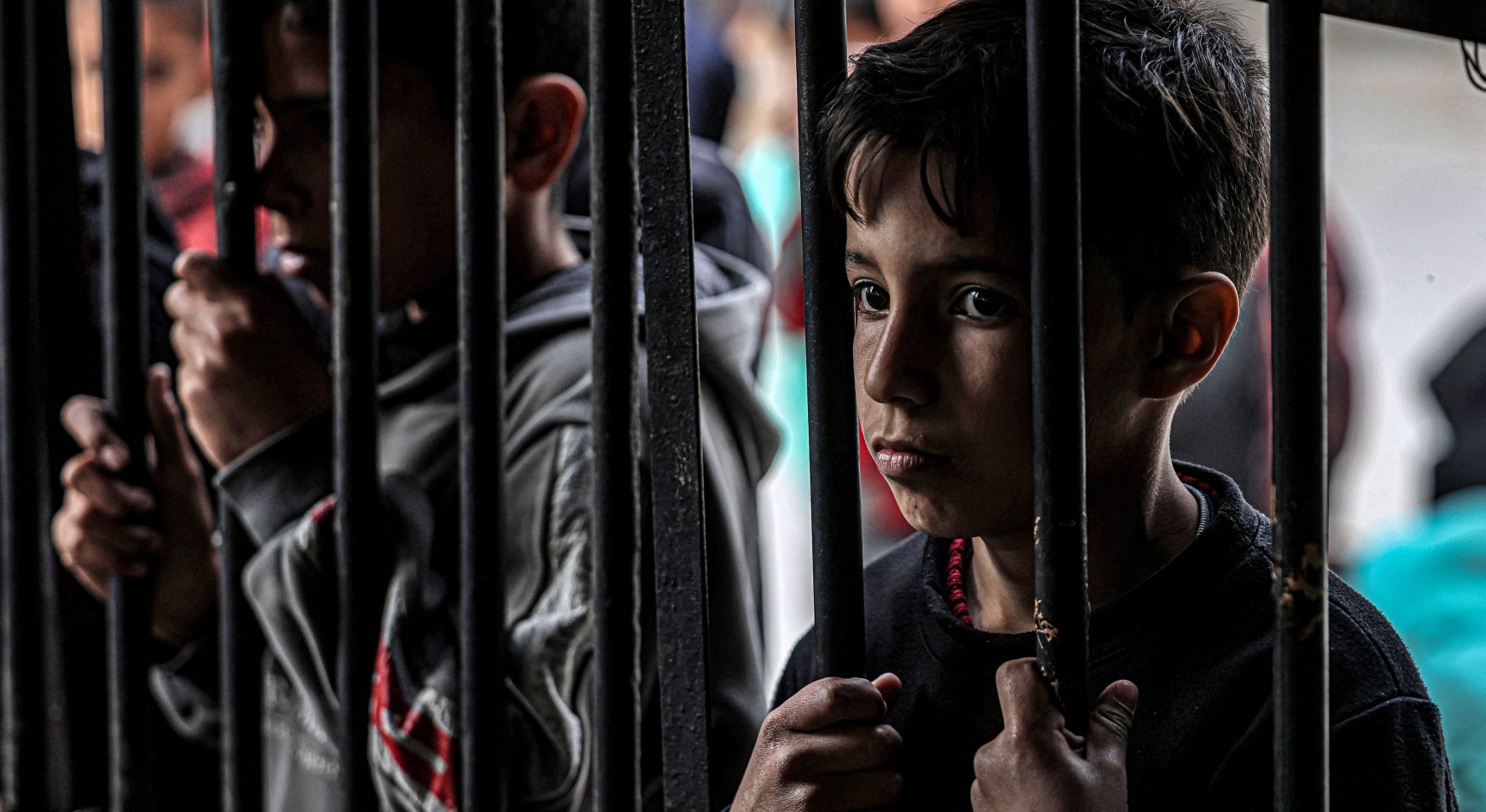
Twenty eight Palestinians, nearly all children, have starved to death in Gaza in recent days, according to the Palestinian health ministry. Tomorrow, that number will increase, and the next day, it will climb even higher.
Starvation is not a death of natural causes in a world that grows and produces more than enough food to feed everyone. Palestinian children in Gaza are not starving to death because farmers had a dry season. The starvation of children is a political choice made by Israel and buoyed by the Biden administration’s complicity.
Israeli authorities have continually blocked and severely restricted the entry of humanitarian aid into Gaza. So far in March, an average of 168 aid trucks have crossed into Gaza on a daily basis, far below the 500 trucks that entered Gaza daily before 7 October - and nowhere close to what is needed to prevent more children from starving to death.
Very little, if any, of the aid reaches isolated Palestinians in northern Gaza, and Israeli forces have attacked Palestinians trying to reach it.
On 29 February, around 120 Palestinians were killed after Israel opened fire on a crowd of hungry people trying to get aid from a convoy of trucks in Gaza City, in what was dubbed the Flour Massacre. Those in the crowd were desperate for a bag of flour to make bread for their families.
New MEE newsletter: Jerusalem Dispatch
Sign up to get the latest insights and analysis on Israel-Palestine, alongside Turkey Unpacked and other MEE newsletters
The massacre received some condemnation from world leaders, but as usual, no one took any concrete action to hold Israeli forces accountable to ensure it never happens again.
The Biden administration, for its part, seems to have given up on using its influence to pressure Israeli Prime Minister Benjamin Netanyahu to allow aid trucks into Gaza.
Just a day after the Flour Massacre, President Joe Biden announced that the US would airdrop aid into northern Gaza - a move quickly criticised by humanitarian groups as inefficient, ineffective and wildly expensive compared to trucks, which can carry much more and have been lined up outside of the Rafah crossing waiting to enter.
Public relations move
In addition, airdrops come without a distribution plan. Those who are strongest and fastest can get to the aid first, while those who are sick and weak go without.
The airdrops were a public relations move from the outset, and they turned deadly when parachutes malfunctioned and the falling boxes killed five Palestinians. The irony of the United States funding both the bombs and the aid boxes falling from the sky that kill Palestinians is lost on nobody.
Follow Middle East Eye's live coverage of the Israel-Palestine war
Biden’s latest plan to build a floating pier where aid can be delivered to Gaza leaves more questions than answers. How long will it take? How much will it cost? What is the distribution plan? Is it anything more than a cover to set up a US military base off the coast of Gaza?
For the children of Gaza, the answers will come too late.
Genocide is not only the mass killing of a population. It also involves attacking the conditions that make life possible
Humanitarian and hunger experts comprising the Integrated Food Security Phase Classification (IPC) famine review committee issued a report on 21 December raising the alarm that 80 percent of Palestinians in Gaza were in phase four (emergency) or phase five (catastrophe) on the scale of acute food insecurity. The report also warned that the risk of famine increases every day as conditions worsen.
That report was published more than three months ago, and many of its predictions have come true: Palestinians, including children, are dying of hunger.
On Monday, the IPC issued an updated report indicating that famine is "imminent" in north Gaza between now and May, and that "the conditions necessary to prevent famine have not been met" since its first report was issued in December. We have no time to lose.
Malnutrition is a slow death, affecting young children, the elderly, people with disabilities, and pregnant and breastfeeding women first. It is both preventable and treatable if enough healthy food is available and doctors have the necessary resources.
Genocidal conditions
Unicef estimates that when children with severe acute malnutrition are treated, there is an 80 to 90 percent rate of success. In a place like Gaza, where Israeli forces kill Palestinians trying to reach bags of flour and severely restrict the amount of aid that enters, that rate plummets.
The health ministry has confirmed that 24 children in Gaza have died of malnutrition and dehydration, but the official count only includes children who were hospitalised, or whose families reported their deaths to the ministry - which is to say, we don’t really know the true scale of how many children are starving to death in Gaza.
The healthcare system has collapsed, and with continuous Israeli air strikes and ground troops occupying Gaza, many Palestinians aren’t able to reach the few hospitals that are still operating. There is not enough clean water or food, and diseases such as diarrhoea, which prevents the absorption of nutrients, are spreading rapidly.
Genocide is not only the mass killing of a population. It also involves attacking the conditions that make life possible: sources of food, water, medicine and more.
Children in Gaza cannot wait for Biden to airdrop enough food for two million people, or build a pier in the Mediterranean Sea large enough to accept cargo ships, or whatever plan he’ll announce next week to demonstrate how unserious his administration is about preventing Palestinian children from starving to death.
Palestinian children need a lasting ceasefire that guarantees Israeli authorities will permit huge amounts of humanitarian aid to enter - and they need it today.
The views expressed in this article belong to the author and do not necessarily reflect the editorial policy of Middle East Eye.
Middle East Eye delivers independent and unrivalled coverage and analysis of the Middle East, North Africa and beyond. To learn more about republishing this content and the associated fees, please fill out this form. More about MEE can be found here.



